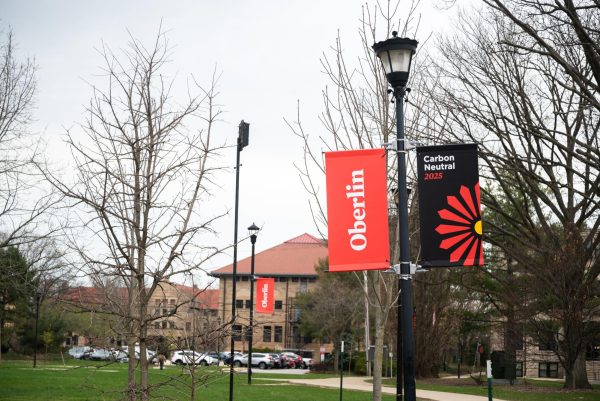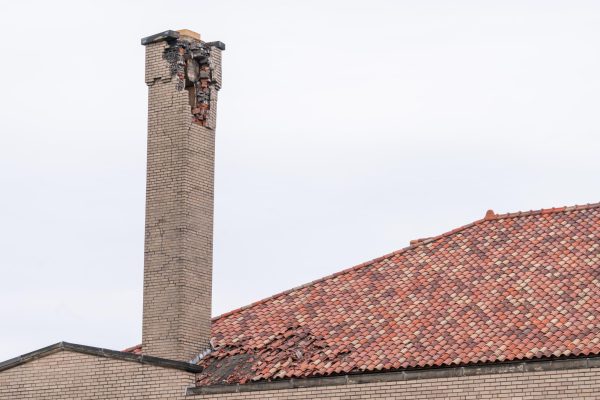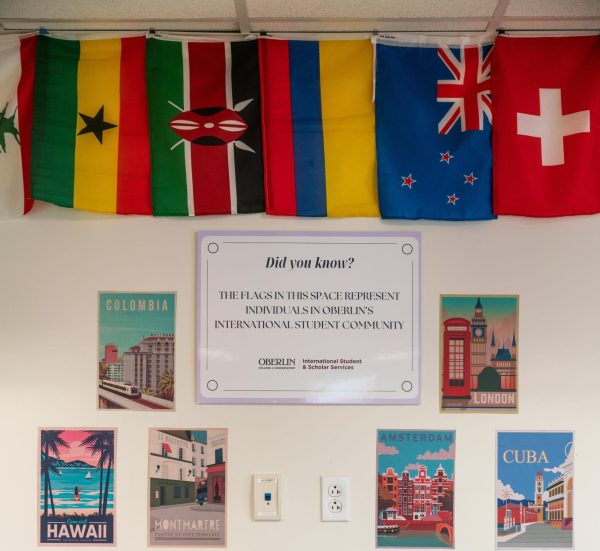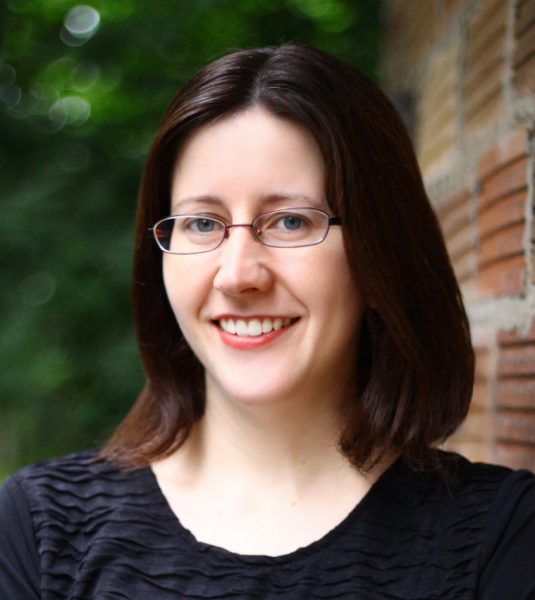Second-Years Tackle Career-Readiness, Complex Problems, Workplace Equity in SOAR
Many College second-years have just finished up a month-long virtual retreat focused on academic and career preparation, developing creative solutions to global issues, and equity in professional settings.
The retreat was put on by Oberlin’s Career Development Center and the Bonner Center and is an expanded version of the Sophomore Opportunities and Academic Resources program. Once a two-day retreat, this year the SOAR program extended through the whole month of January and sought to give second-year students — who are unenrolled this spring as part of the College’s three-semester plan — a more holistic approach to career development. At the end of the SOAR retreat, participants could choose to begin a funded micro-internship tailored to their interests.
Over the past two years, the shorter version of SOAR helped second-years plan their long-term course selection, Winter Terms, and entrance into professional settings. Director of the Peer Advising Leaders program and SOAR Nathan Carpenter, ’OC 20, explained that this goal remains a key part of the program.
“SOAR fills a need to take stock during an important moment in your sophomore year and think about, you know, ‘I have three, four semesters under my belt, let me take a moment to consider, to reflect, and to be intentional about where I’m going next,’” he said. “That’s always been the core of the SOAR program.”
SOAR’s core organizers — Dana Hamdan, executive director of the Career Development Center and associate dean of students; Tania Boster, interim director of the Bonner Center and assistant professor of History; and Carpenter — saw the second-years’ semester off as an opportunity not only to prepare students more intensively for their careers at Oberlin and beyond, but also to prepare them to engage in anti-racist work in professional settings and increase their awareness of global problems. The program included presentations from alumni experts on public health, climate change, refugee protection and resettlement, and gentrification.
According to Hamdan, the choice to limit the content to four complex problems arose out of feedback from the Junior Practicum. That program explored 11 different topics, so when students asked for a more in-depth approach, the organizers honed down the offerings.
College second-year and SOAR participant Leo Hidy was energized by hearing Obies talk about their varied career paths.
“Listening to the keynotes that had Oberlin alumni talk about their journey postgrad, and hearing the passion that they have for their current careers, was super valuable to me in terms of trying to figure out what I want to do post-grad,” Hidy said.
When it came time to focus on global issues important to Oberlin students, second-years were assigned one complex problem to investigate and were tasked with coming up with entrepreneurial solutions.
“I appreciated that they included things that weren’t directly connected to career development,” College second-year Maggie Elsen said. “They had complex problems, things that we discussed, global issues that I think that we probably wouldn’t discuss in a normal class. … I liked the focus on working to fix these issues.”
The retreat also investigated career development through the lens of Diversity, Equity, and Inclusion. For some workshops, students would elect to join a group based on their racial identity. These sessions provided a space for students of color to discuss navigating predominantly-white spaces and for white students to discuss allyship after Oberlin.
Hidy found the identity-based workshops to be very valuable.
“That was fantastic,” he said. “We were able to learn a lot about, ‘How do we internalize the Oberlin community that is both very liberal, but also very white and entrenched in this very niche type of liberalness that can sometimes feel insincere?’ Sort of assessing, ‘How do we interact with that at Oberlin, and then how we interact with that in our careers going forward?’”
Elsen explained that the workshops provided an opportunity to start important conversations.
“I thought that it opened a door to conversations that we don’t always have a good channel to,” Elsen said. “And I think it would be better if we had had more because a lot of conversations that got started didn’t really get concluded. But I think it gave people a lot to think about.”
College second-year Tesia Singh-Ragen appreciated the DEI workshops and believes that there’s room for more dedicated workshops in future iterations of the program.
“I definitely think it was important to include and helped round out the conversations we were having,” Singh-Ragen said. “I identify as a person of color, or mixed, and we had two big workshops talking about our experiences at Oberlin, what we want to change and how we want to reach out to each other and things like that. After both of them I wished that there was more of it, so I guess that’s a good sign.”
For Hamdan, DEI is pivotal to preparing students for their careers after Oberlin.
“The Career Development Center sees DEI as central to our responsibility to prepare students to navigate and thrive in diverse academic and professional environments,” Hamdan wrote in an email to the Review. “This work is messy. I was excited by the range of DEI programming we were able to offer through SOAR, and four out of five students told us they left the retreat with a better understanding of the intersections between DEI and academic experiences. We still have more work to do, and it must be in response to feedback from students.”
The program’s potential for improvement remains an exciting prospect for Carpenter.
“For an ambitious program with a lot of different pieces, you can always get better at tying those pieces together,” he said, “That’s one thing that’s really exciting to me as I think about next year and how this program can continue to evolve.”
Looking forward, Hidy hoped to see future iterations of SOAR further improve accessibility.
“The structure of it I think had a lot to work on,” he said. “If I’m thinking about the pitch competition, it wasn’t the best idea to give students three days to prepare something with a cash prize at the end. That means that students who can’t work that much on this — like if you have an outside job and you need that outside job — you’re disadvantaged there.”
College second-year Kamcee Ugwokegbe thinks that the program could be more effective in the future if they made some of the workshops, such as choosing a major or building a résumé, optional.
“There was a big difference between people who knew what they were going to do, who already had a plan, and people who were just in the dark,” Ugwokegbe said. “If they shortened the SOAR program, but add something for people who hadn’t gotten certain things done — maybe do that earlier — by the time SOAR started everyone would be on the same page.”
For Singh-Ragen, SOAR was a good avenue to stay connected with her peers during her time away from Oberlin, as well as focus on Career Development.
“It was super stimulating and I think kind of the perfect way to start our funny semester off,” Singh-Ragen said. “I think it was a really good boost to kind of remind us of what we want to do at Oberlin. I felt like it was really good motivation to stay in touch with people and make the most of this time.”






